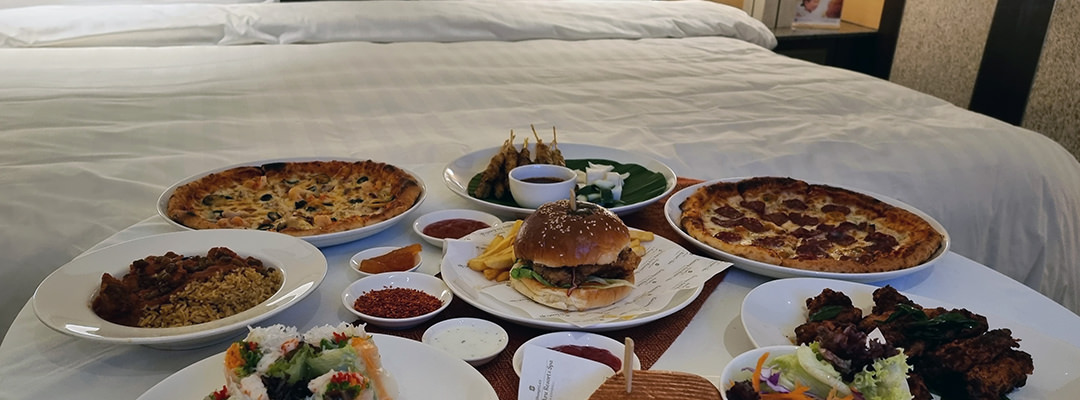Should I or should I not eat before nighttime? This is a common debate in dieting circles, with many confused about how to go about it. There are several differing opinions on this topic, with backing up facts from research on each side.
Studies suggest that having a meal before sleep can affect weight loss and sleeping patterns. Both are critical physiological functions needed for your healthy being. To know whether or not you should eat before bed, hang on as we have an in-depth look at this subject.
When to Stop Eating Before Going to Sleep?
First things first, it is generally recommended to adjust your eating habits by having your dinner at least three hours before bed. This gives your body time to digest and prevents you from waking up feeling bloated or nauseous during the night or in the morning. That being said, of course, everyone is different, and you may find that you can eat closer to bedtime without any issues.
Advantages Of Eating Before Bed
Contrary to most suggestions, there are many benefits of eating before slumbering. If you have ever slept on an empty stomach, you understand how going to bed hungry is uncomfortable.
A thing to keep in mind is the timing, as discussed above. Many professionals recommend that you have a meal or evening snack at least 3 hours before hitting the sheets and try to wake up early. Highlighted below are some of the perks of going to bed on a full stomach.
A Better Sleep
We cannot stress this more; quality sleep is essential for your well-being. It helps you recharge and wake up fresh. As earlier hinted, many people have a problem sleeping on an empty stomach. To get you in a relaxed mood, have a bowl of your favorite snack, at least three hours before bed.
You may notice that you feel very sleepy at night after having a heavy meal. This is due to blood flow heading to the small intestines for absorption of nutrients. As such, there is minimal blood flow to the brain, which brings sleepiness. It may work for you if you have difficulty sleeping.
You can choose late night snacks that promote sleep and are high in tryptophan and melatonin. Tryptophan is an amino acid that raises the body’s levels of the neurotransmitters melatonin and serotonin. Melatonin helps regulate your sleep cycle and fall asleep. If you’re taking melatonin supplements, you need to check regularly if your melatonin is expired, as its effectiveness can decrease over time.
Good if You are on Medication
If you are on meds, you need food to act as a buffer. It is true, especially if you should take the drugs before sleeping. Without food, some meds may be pretty harsh on your digestive tract or be less effective.
The Weight Gain Debate
A common argument against eating before sleeping is that it contributes to weight gain. A wrong assumption is that when you sleep, all your body systems shut down. Metabolism continues, considering that rest also needs energy. It means if you eat, the food will still get processed. You can have snacks that are metabolism boosters to improve energy production when you are at rest.
Muscle Synthesis
Muscle synthesis is the repair of worn-out muscles, an antagonist to muscle protein breakdown. This process works best when you are resting. If you are into exercising, you can have a protein-based late-night snack, like eggs or a milkshake, before sleeping. The foods provide building blocks for muscle regeneration. In the long run, it will help you achieve the desired body or level of fitness.
Brainpower for the Following Day
You need brainpower for high activity and physiological coordination. Having a meal moments before you sleep will provide the base brainpower for the following day. Eat your favorite snack, especially if it is rich in essential nutrients like Omega-3 fatty acids, for a fresh boost when you get up. It also gives you residual energy if you are into exercising.
Downsides of Eating Before Sleeping
Despite its many advantages, having a meal late at night before sleep has some downsides, as shown below.
Risk of Heartburn
There is the risk of getting heartburn when you take a meal right before you hit the sheets. It comes from consuming foods, like those with tomatoes or cooked with some alcohol. Heartburn can be pretty uncomfortable, where you feel a sharp pain around your chest. It may interfere with your sleeping pattern, and you may wake up feeling beat.
A Problem if You Have Acid Reflux Issues
Eating before sleep can be a problem if you have some digestive problems. One of the major culprits is gastroesophageal reflux disease. Here you risk having acid stomach contents flow back to the esophagus. It may lead to ulcers or, worse off, choking.
Discomfort Due to Overeating
If you overeat, you will have a hard time getting decent rest. You may feel a pinch on your tummy, forcing you to assume different sleeping positions. The shifting may compound the problem. In some individuals, it may cause secondary issues like vomiting, which is quite dangerous when asleep.
Weight Gain
In this case, overeating is still the culprit. If you consume large amounts of calories, you are at risk of gaining weight, especially if the diet is rich in carbs and fat. A thing to know is that metabolism when sleeping is pretty slow. So if don’t watch your caloric intake, you may gain weight.
High Blood Sugar
The other downside of this eating pattern is high blood sugar. Your blood sugar levels may rise after consuming too many carbs from junk foods such as ice cream, cakes, or chips. Short-term effects include restlessness due to excess energy, which can lead to loss of sleep. At times, it may manifest in mood swings. Long-term effects include metabolism and nervous system issues, as well as heart diseases.
Disturbed sleep
Don’t forget the foods you eat can impact your sleep quality. For example, chocolate and coffee might seem like a good idea before bed, but they contain caffeine and will only make you more energized and may wake you up several times during the night.
What You Need to Know
There are things you need to know about eating before bed for sound sleep and health. First of all, timing is essential. As per many dieticians’ advice, eat 3 hours before bed. Here, you kick start metabolism earlier; hence, minimal chances of disturbance when asleep.
Also, take small food servings that offer sufficient nutritional value. In this case, a small serving will have you satisfied and offer maximum nutrients. Large food servings may cause some discomfort and come with the risk of weight gain.
The choice of food also matters. Many dieting professionals encourage you to steer away from carbs when you are almost going to bed. Excess carbs can spike up your blood sugar levels, which can affect your sleep due to irritability. Instead, you can stack up on veggies, fruits, and some proteins. Foods containing calcium and magnesium, like dairy products, can boost sleep, too.
Talking about blood sugar, ensure you achieve a balance. Going extra low on sugars will have you getting up feeling weak and moody at times.
Eating before bed is not bad after all, bearing in mind its advantages. Contrary to hearsay, it is not a guaranteed ticket to being overweight. It depends on what you consume. Eat healthily, and weight gain won’t be a problem.
Additionally, you sleep fast and soundly, which is essential if you have bouts of insomnia. Some of the downsides include heartburn, indigestion, and weight gain. Follow guidelines like timing, quantity, and food choice to avoid any problems associated with having a meal before sleeping.





